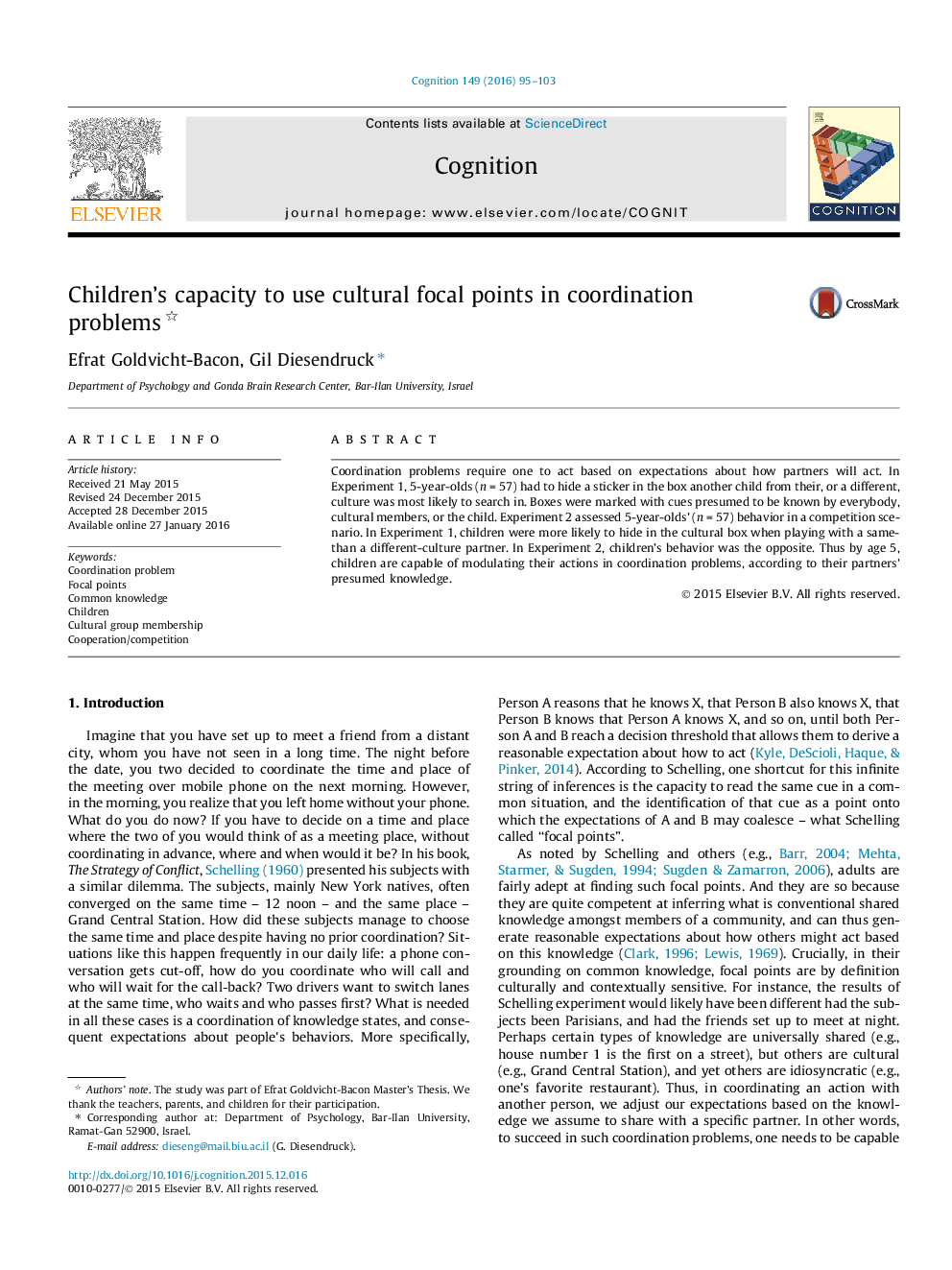| Article ID | Journal | Published Year | Pages | File Type |
|---|---|---|---|---|
| 926442 | Cognition | 2016 | 9 Pages |
Abstract
Coordination problems require one to act based on expectations about how partners will act. In Experiment 1, 5-year-olds (n = 57) had to hide a sticker in the box another child from their, or a different, culture was most likely to search in. Boxes were marked with cues presumed to be known by everybody, cultural members, or the child. Experiment 2 assessed 5-year-olds’ (n = 57) behavior in a competition scenario. In Experiment 1, children were more likely to hide in the cultural box when playing with a same- than a different-culture partner. In Experiment 2, children’s behavior was the opposite. Thus by age 5, children are capable of modulating their actions in coordination problems, according to their partners’ presumed knowledge.
Related Topics
Life Sciences
Neuroscience
Cognitive Neuroscience
Authors
Efrat Goldvicht-Bacon, Gil Diesendruck,
